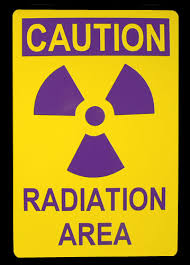by Richard Sanders, Staff Writer
The U.S. Ambassador to New Zealand has stated that Pacific nations should have the autonomy to determine their own stances on nuclear weapons. This statement follows comments from former Trump adviser John Bolton, who suggested that New Zealand could be in danger if it maintains its strict prohibition on nuclear technology. New Zealand implemented a ban on nuclear-powered or nuclear-armed vessels in its waters during the 1980s. While full defense collaboration with the U.S. resumed in 2012, New Zealand’s nuclear-free policy has persisted. US Ambassador Tom Udall emphasized that the decision rests with each country.
In the 1980s, New Zealand’s Labour Party emerged as a formidable advocate for nuclear disarmament, firmly positioning the nation against the proliferation of nuclear weapons in the Pacific. This bold stance not only reflected the party’s commitment to peace but also sparked significant diplomatic tensions with traditional allies, notably France and the United States.
The catalyst for New Zealand’s strong anti-nuclear sentiment was the Labour government’s 1984 declaration of a nuclear-free stance. This policy prohibited nuclear-powered or nuclear-armed vessels from entering New Zealand waters, aligning the nation with global disarmament efforts. The decision resonated with a public increasingly wary of nuclear warfare, particularly in the wake of global nuclear tensions.
However, this commitment came at a cost. The French government reacted strongly, particularly due to its own nuclear testing programs in the South Pacific. In a notorious incident, French agents orchestrated the bombing of the Greenpeace vessel Rainbow Warrior in Auckland Harbour in 1985, resulting in the death of a photographer and drawing international condemnation. This act not only highlighted the lengths to which France would go to protect its nuclear interests but also strained diplomatic relations with New Zealand, which viewed the attack as an affront to its sovereignty and commitment to peace.
The United States also reacted negatively to New Zealand’s anti-nuclear policy. The U.S. government, which relied on a strategy of nuclear deterrence and sought close military ties with its allies, imposed a ban on senior New Zealand officials visiting Washington for over a decade. This diplomatic freeze underscored the rift that had developed due to New Zealand’s principled stance on nuclear disarmament.
In more recent years, New Zealand’s opposition to the AUKUS pact—an agreement between Australia, the UK, and the U.S. for the development of nuclear-powered submarines—has reignited discussions about its nuclear-free policy. New Zealand’s refusal to allow nuclear-powered vessels to patrol its waters has strained relations with its allies, particularly as they navigate the complexities of regional security in an increasingly tense geopolitical landscape.
As New Zealand continues to champion a nuclear-free Pacific, it remains a point of contention with countries that view nuclear capabilities as essential for defense. The legacy of the Labour Party’s policies in the 1980s has shaped New Zealand’s identity on the international stage, illustrating the intricate balance between national principles and diplomatic relationships.



